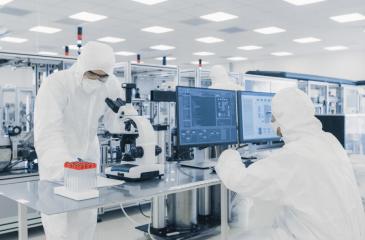The University of Minnesota is one of two institutions in the United States to host a new center established by the Biostasis Research Institute (BRI) aimed at creating human organ banks through the cryogenic storage of organs donated for transplantation.
BRI is launching and funding the Organ and Tissue Preservation Center at the U of M, which will focus on technologies to safely and rapidly rewarm cryopreserved organs and other living systems. This center will be housed within the U of M Institute for Engineering in Medicine (IEM) and will be led by IEM Director John Bischof and Medical School Department of Surgery faculty member Erik Finger.
“We applaud the BRI for spearheading a research effort that aims to address some of the most critical bottlenecks in regenerative medicine,” said Bischof, a faculty member in the College of Science and Engineering. “By funding a new Organ and Tissue Preservation Center at IEM, BRI is accelerating research and technology development that will positively impact millions of patients, including children on transplant wait lists and people with neurodegenerative conditions.”
Together with a sister research center at Massachusetts General Hospital, the Organ and Tissue Preservation Center will develop new technologies to store tissues, and organs for biomedical research as part of a larger “Apollo Program” in cryopreservation (extreme cold storage) and suspended animation (safely slowing and stopping biological processes). This national research effort has now reached well over $100 million in funding from U.S. science agencies, philanthropic donors and industry partners.
“By funding biostasis research, we are investing in the future of organ donation and transplantation. This initiative advances the LifeSource mission: to honor the heroism of every organ donor by maximizing the impact of their life-saving gifts,” said Susan Gunderson, CEO of BRI founding supporter LifeSource — the Organ Procurement Organization serving Minnesota, South Dakota, North Dakota and Western Wisconsin.
In addition to being supported by BRI, the University's Organ and Tissue Preservation Center will be bolstered by our new NSF Engineering Research Center ATP-Bio, which aims to develop and deploy breakthrough bioengineering technology to preserve a wide range of biological systems.
This story was originally published April 22, 2021 by the University of Minnesota



